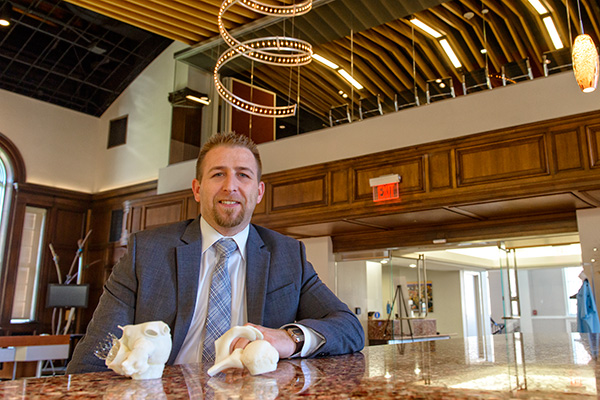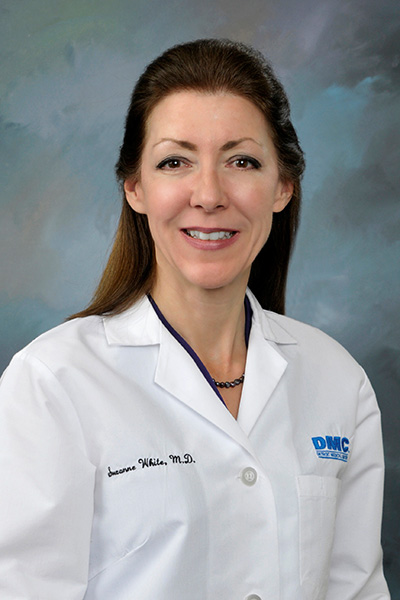The innovative spirit of Detroit, embodied in the legacy of Henry Ford, never really died. Its soul lives on, especially in Midtown.
The Brookings Institute has identified areas that contain concentrations of universities, research institutions, and companies as "innovation districts," or places that "supercharge the economy." In 2014,
Mayor Duggan participated in this national initiative by establishing the area extending from the Detroit River to New Center -- which contains much of the city’s academic, health, and biomedical infrastructure -- as an innovation district.
Leveraging the creative culture spawned by the educational and cultural legacy of Midtown, many believe this district could become a nexus of innovative thinking and commercial development for the entire region.
Nowhere is this more evident than in the historic Argonaut Building. Once a General Motors research and design facility, it's now home to the College for Creative Studies (CCS) Taubman Center, a singular continuum of academic and commercial design. The Taubman Center promotes cross-mentoring experiences for art and design students at various phases of their education, from middle school through graduate school, and into the commercial realm.
"There's an opportunity to think in an even bigger way than we did before...to make this a hub of all kinds of activity," says Rick Rogers, president CCS, of what's taking place in the Argonaut. "It was serendipity that Shinola showed up in Detroit looking for space. The rest is history."
Shinola, which assembles watches and bicycles in the building, sponsors design projects with CCS students and has hired some upon graduation.
 Michael Forbes, product designer and licensing associate at the Henry Ford Innovation Institute
Michael Forbes, product designer and licensing associate at the Henry Ford Innovation Institute
A few blocks from the Taubman Center, Michael Forbes, a CCS graduate, is a product designer and licensing associate at the Henry Ford Innovation Institute. He and other students were recruited by the institute to identify ways of improving the patient care experience by meeting with doctors, nurses, professional staff, and patients to determine problems and opportunities.
One CCS team came up with concepts for a gown that allows for greater comfort and privacy while maintaining functionality. The institute performed additional research and development before licensing the design through the Henry Ford Health System (HFHS). Carhartt, the Dearborn work clothing company, was enlisted for early inventory production, and the Model G Patient Gown has since been licensed to Medline Industries for manufacturing, national sales, and distribution.
"The whole culture of Henry Ford Hospital, as an institution, has been innovating since it started 100 years ago," says Forbes. "Now we're going beyond what you think of as traditional health care and have created a focused way to cultivate ideas through the Henry Ford Innovation Institute program."
Established in 2011 to research, design, and develop new medical inventions, the institute launched the Davidson Fellowship in 2014 to foster the collaboration of people working inside and outside of the healthcare industry. The fellowship mixes formal classroom curriculum with team-based projects to address specific technology or health care problems. Currently, 26 fellows are participating in the program.
The institute is a part of the health system’s $500 million commitment to develop research, residential, and retail projects in the Midtown area.
 Dr. Suzanne White, chief medical officer at the DMCThe health system’s competitor, the Detroit Medical Center
Dr. Suzanne White, chief medical officer at the DMCThe health system’s competitor, the Detroit Medical Center (DMC), collaborates with HFHS indirectly through Wayne State University (WSU) research. The environment is "very exciting," says Suzanne White, M.D., chief medical officer at the DMC. "You look around and see the vibrancy. It’s an interwoven sense of innovation where many projects and physician scientists are linked."
The lack of primary care sites in Detroit is a perplexing problem that results not only in less preventive care, but people compensating through the use of hospital emergency facilities. In 2014, the DMC won a
$10 million federal grant to develop a more cost-effective way of providing primary and chronic disease care for patients using its emergency facilities. Their proposal reversed the traditional practice of redirecting people to alternative sites, such as urgent care or community health centers, and instead proposed developing primary care facilities on the hospital campus.
"Rather than a turning-away program, it’s a welcoming program," says Dr. White.
The DMC has enrolled 2,000 patients -- 200-300 per month -- since starting the program in 2014. Dr. White says she expects to meet the organization’s goal of 14,000 by the conclusion of the program in 2017.
TechTown Detroit, also housed in an Albert Kahn-designed building in Midtown, provides yet another linkage between academic researchers and the commercial world. A business incubator created by Wayne State in 2000, TechTown serves as a nexus for collaboration, in part through institutional partners General Motors and HFHS.
Paul Riser, director of technology-based entrepreneurship at TechTown, meets with a team of executives in residence to review entrepreneurial proposals for potential startups. He also has monthly meetings with the Wayne State Tech Transfer office to identify prospective intellectual property, and works with the university’s engineering and medical schools to support the development of ideas from students, faculty, and researchers. Ideas are not actually "transferred" to TechTown Detroit, but "shared" with the Labs Venture Accelerator. Riser estimates that 200 ideas were evaluated by TechTown in 2015.
"There are opportunities to offer commercialization guidance and resources from internal team members or from curated resources within the ecosystem," says Riser.
With so many major institutions collaborating on ventures and solutions, Midtown Detroit will be integral to the region's economy for years to come.
This story is a part of a series of features on the impact of Detroit's anchor institutions. Support for this series is provided by a coalition of organizations, including Henry Ford Health System, Detroit Medical Center, Hudson-Webber Foundation, Wayne State University, College for Creative Studies, and Midtown Detroit Inc.
Dennis Archambault is a Detroit-based freelance writer.
Photos by Doug Coombe.